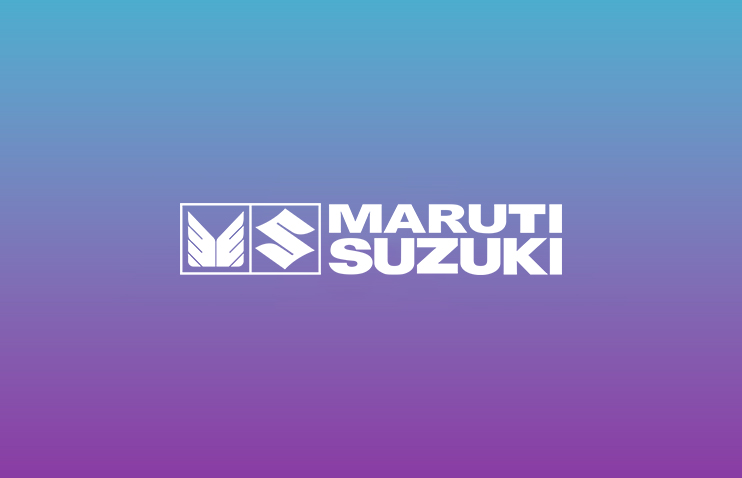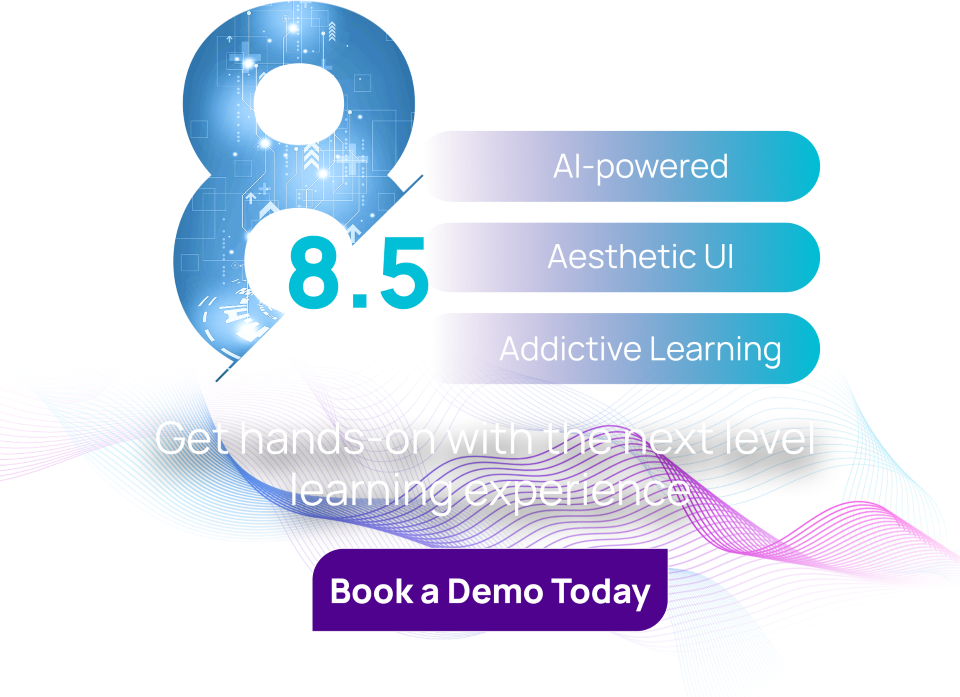
HMSI Improves Extended Workforce Learning Engagement by 60% with Tenneo LMS
May 14, 2025
RBML Boosts Course Completion Rate by 45% with Tenneo LMS
July 2, 2025Maruti Suzuki Boosts Learning Efficiency by 60% with Tenneo LMS

Client:
Maruti Suzuki India Limited
Industry:
Automotive
When Maruti Suzuki India Limited (MSIL), India’s largest passenger car manufacturer, set out to streamline learning across its vast plant and dealer network, their vision was clear: deliver consistent, multilingual, and accessible training to a diverse workforce. From compliance and product training to sales and soft skills, MSIL needed a platform that could do it all.
With Tenneo LMS, MSIL streamlined learning for its workforce, driving regional learning, real-time assessments, and compliance-ready reporting. The result? 75% higher adoption, faster proficiency, and a scalable, future-ready learning ecosystem. Read the entire case study to understand how Tenneo made it happen.
About MSIL
Maruti Suzuki India Limited (MSIL) is India’s largest passenger car manufacturer, commanding over 42% of the domestic car market. With a product portfolio spanning nearly 200 variants and a sprawling network of 1,619 sales outlets and 3,086 service centres across 1,471 cities, MSIL is the undisputed leader in mobility solutions. Its vast operations span manufacturing plants, dealership networks, and global markets, making training and workforce development both a necessity and a strategic priority.
Business Requirements
As a leader in the automotive industry, MSIL had high expectations from its learning platform. Their goal was ambitious yet clear: to centralise, standardise, and scale training across two massive learner bases - plant employees and dealer teams.
Here’s what MSIL needed:
- A Unified LMS for Two Diverse Audiences: MSIL wanted a single platform to manage learning for both plant employees (mechanics, assembly line workers, supervisors, etc.) and dealership staff (sales executives, customer service agents, and regional sales heads). The plant-focused LMS would be branded MSIL Plant, and the dealership LMS would be branded as MSIL International using Tenneo LMS v8.1, Grow variant.
- Role-Based, Objective-Aligned Learning Journeys: MSIL’s workforce spans across manufacturing, sales, service, and operations. Each job role required a customised learning path aligned with performance goals, regulatory requirements, and business outcomes.
- Support for Multiple Languages and Digital Literacy Levels: Plant employees had limited tech exposure and language barriers. This necessitated an intuitive UI and regional language content delivery. Additionally, the LMS interface had to support French, Spanish, Arabic, and Portuguese for its global network.
- Blended Learning with Strong Classroom Training Support: A large share of MSIL’s training, especially for plant employees, happened in classrooms. They needed a robust ILT (Instructor-Led Training) management module for classroom training, integrated with online assessments, certification, and reporting.
- · Compliance Training with Audit-Ready Reporting: As an automotive manufacturer, MSIL is bound by stringent industry regulations. They needed a platform that would automate compliance tracking, generate audit-ready reports, and support mandatory training rollouts for their employees.
- Content Migration from Legacy Systems: MSIL required seamless migration of content and learner data from their existing systems to Tenneo LMS without disruption.
- Scalability Across 473K+ Learners: With over 473,414 plant employees and dealers, the system had to handle high volumes of users and content with zero compromise on speed or experience.
Key Challenges
MSIL’s training ecosystem was large, fragmented, and growing rapidly. But their legacy learning infrastructure was struggling to keep up. Here are the key challenges they faced:
1. Lack of Training Standardisation Across Locations
Training programs varied significantly across plants and dealerships, both in terms of content quality and delivery methods. This lack of consistency led to uneven learner experiences and made it difficult to ensure that all employees met the same standards. This was critical in a tightly regulated sector like automotive manufacturing.
2. Language and Tech Literacy Barriers
Many plant workers had limited proficiency in English and weren’t comfortable using complex digital tools. As a result, learning navigation became a hurdle, causing drop-offs in course completion and poor learning outcomes. This gap was especially problematic when trying to deliver compliance and safety training, which are both non-negotiable in the automotive domain.
3. Manual Coordination of Classroom Training
Instructor-led training (ILT) was a preferred format across manufacturing units, but managing classroom sessions manually at the scale MSIL operates was becoming unsustainable. Scheduling trainers, tracking attendance, collecting feedback, and assessing performance required multiple tools and teams, leading to errors, duplication of effort, and delays in learning deployment.
4. Disjointed Compliance Tracking and Audit Preparation
Compliance training needed to be delivered with precision and documented for audits. But the existing mechanisms didn’t support real-time tracking, automated notifications, or centralised reporting. MSIL’s L&D and compliance teams spent countless hours generating reports manually, which introduced risk and made audit preparation inefficient.
5. Content & Data Migration from Legacy Systems
With learner data stored in different formats and platforms, MSIL needed a platform that could migrate everything into the new LMS without losing structure or historical records. Any disruption during this transition could have impacted ongoing training operations across plants and dealerships.
Tenneo’s Approach & Solutions
Tenneo designed and deployed a learning solution that addressed each of these challenges with clarity and purpose, delivering not just a platform, but an engine for learning transformation.
1. Centralised, Role-Based Training Architecture
Tenneo helped MSIL build a dual-branded LMS, MSIL Plant and MSIL International, each tailored to the needs of their respective audiences. Learning pathways were designed based on roles, regions, and business objectives, ensuring employees could access consistent, role-relevant training with a few clicks. This approach significantly improved standardisation and training governance across business units.
2. Multilingual, Intuitive Learning Experience
The LMS interface was made available in multiple Indian languages for plant users and in global languages like French, Spanish, Arabic, and Portuguese for international teams. With an intuitive and user-friendly interface, the platform empowered even the least tech-savvy users to complete training independently. Language was no longer a barrier, it became an enabler of learning access and inclusivity.
3. Streamlined ILT with Full Lifecycle Automation
Tenneo’s robust ILT module digitised the entire lifecycle of classroom training. From session scheduling and trainer allocation to learner registration, attendance, feedback, and post-session assessments, everything was automated and centrally tracked. This reduced admin overhead drastically, ensured better participation, and provided deeper insights into classroom training effectiveness.
4. Compliance Module with Real-Time Tracking and Reports
Compliance became smarter and simpler. Tenneo’s compliance engine auto-assigned mandatory courses based on roles and locations, sent reminders before due dates, and flagged defaulters instantly. Reports were always audit-ready, helping MSIL demonstrate adherence to regulatory standards without scrambling for last-minute data. This directly improved their preparedness during internal and external audits.
5. Zero-Disruption Data and Content Migration
The transition to Tenneo LMS included the migration of 3000+ records, courses, historical learning data, and certifications from MSIL’s legacy systems. The entire process was meticulously planned to ensure zero downtime and no data loss, preserving learning continuity and business operations across both plants and dealerships.
Impact
The implementation of Tenneo LMS across MSIL’s plant and dealer networks was a strategic leap toward building a future-ready, standardised, and high-performance learning ecosystem. MSIL achieved various learning goals with Tenneo LMS:
- 35% Increase in LMS Adoption Among Dealers and Frontline Staff Easy navigation, relevant content, and built-in certifications and leaderboards led to enthusiastic adoption, even among first-time LMS users.
- 60% Reduction in Admin Workload Centralised classroom management, scheduling, and attendance tracking streamlined trainer coordination and cut down manual efforts significantly.
- Standardised Learning Across 3,086 Service Centres & 1,619 Sales Outlets By aligning training with business goals and job roles, MSIL ensured consistent product knowledge and service standards across its vast national footprint.
- 3X Boost in Learner Engagement User-friendly interface, multilingual support, and personalised learning journeys drove higher participation and completion among technicians and assembly-line teams.
- 10% Increase in Compliance Training Completion Automated modules, real-time dashboards, and standardised formats helped MSIL meet regulatory mandates efficiently and always stay audit-ready.

